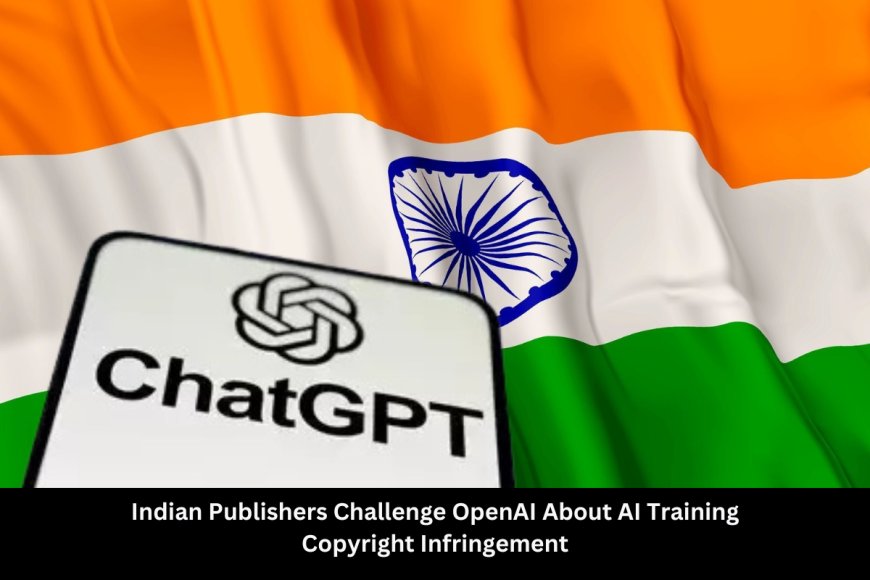AI vs. Copyright: Indian Publishers Take Legal Action Against ChatGPT’s Content Access
Indian publishers and global counterparts have filed a copyright lawsuit against OpenAI in Delhi, alleging unauthorized use of literary works for AI training.

Indian book publishers and their worldwide equivalents have launched a copyright action against OpenAI in the Delhi High Court, expressing concern about the unauthorised use of literary material to train AI systems. The Federation of Indian Publishers (FIP) is leading the action, which includes multinational publishers such as Penguin Random House, Bloomsbury, and Cambridge University Press, as well as Indian firms Rupa Publications and S. Chand and Co.
The case focusses on OpenAI's ChatGPT application, which uses artificial intelligence to generate book summaries and other content. Pranav Gupta, General Secretary of FIP, emphasised the lawsuit's demand that OpenAI either license copyrighted content or erase datasets used in AI training. "This impacts creativity," Gupta said, citing concern about potential revenue losses from AI-generated summaries.
This action is part of a global surge of legal challenges launched by authors, publishers, and musicians against technological companies accused of infringing intellectual property rights. A similar complaint filed by the Indian news agency ANI against OpenAI demonstrates the rising contradiction between copyright protection and technological advancements. OpenAI, which is supported by Microsoft, has refuted the charges, claiming that its systems make legitimate use of publicly available data and that Indian courts lack jurisdiction over its US-based servers.
Publishers are concerned that AI-generated book summaries could harm sales, with ChatGPT delivering thorough synopses of copyrighted works like as J.K. Rowling's Harry Potter series. In response, Penguin Random House launched a global campaign to clearly prohibit the use of its works for AI training without authorisation.
The outcome of these litigation may influence India's future legislative framework for artificial intelligence, putting intellectual property protection and technological innovation to the test. OpenAI, which just hired its first India-based CEO, Pragya Misra, to supervise public policy, has yet to respond to the complaint.
As Indian courts prepare to address these conflicts, the decision is expected to create a precedent for controlling AI development while protecting the country's creative industries.
Source : gadgets360.com







